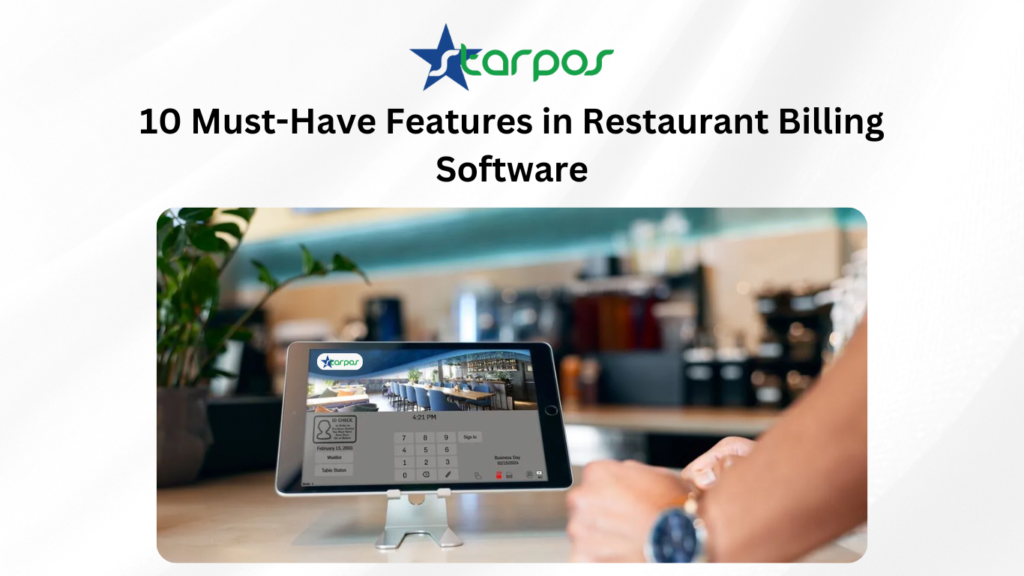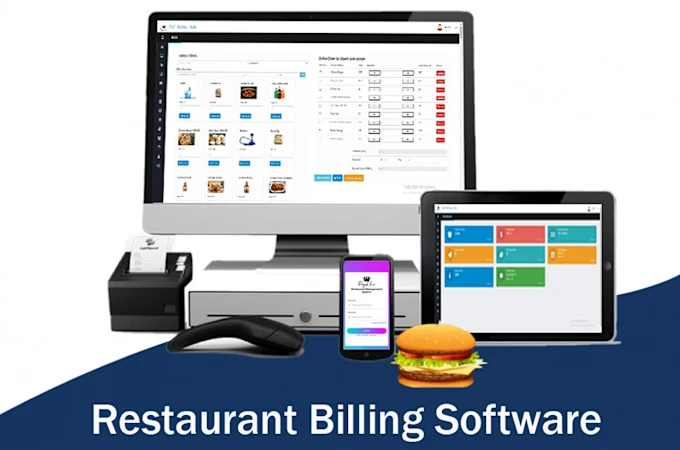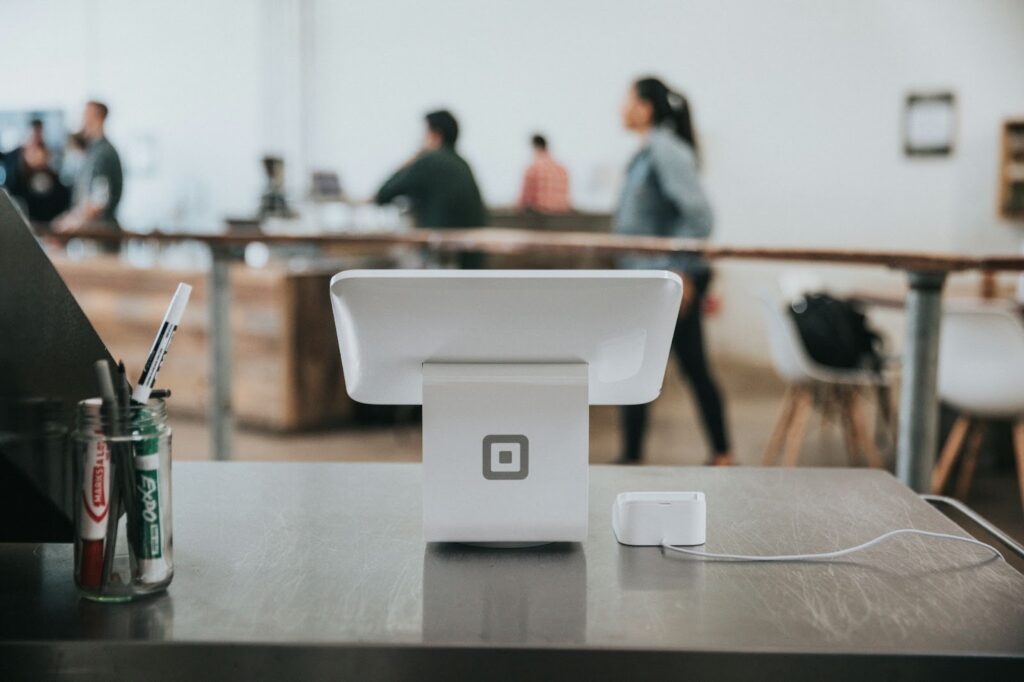
Introduction
In today’s fast-paced restaurant industry, efficient billing software is essential for smooth operations. The right restaurant billing software not only simplifies billing but also enhances customer experience and boosts overall business efficiency. Whether you own a small cafe or a multi-chain restaurant, investing in feature-rich billing software can streamline operations.
Here are the 10 must-have features that your restaurant billing software should include.
1. User-Friendly Interface
A restaurant billing system should be intuitive and easy to use. With high employee turnover in the food industry, training new staff should be quick and effortless. A clean, well-organized interface ensures a smooth checkout process and minimizes billing errors.
2. Multiple Payment Options
Modern customers prefer various payment methods such as credit/debit cards, UPI, digital wallets, and even contactless payments. Ensure that your restaurant billing software supports multiple payment options to cater to all customer preferences.
3. POS Integration
A Point of Sale (POS) system is crucial for managing restaurant transactions efficiently. Your billing software should seamlessly integrate with your POS system to manage orders, track sales, and generate real-time reports.
4. Table Management System
For dine-in restaurants, table management is a critical feature. The billing software should allow easy assignment of tables, merging and splitting of bills, and real-time status updates on table occupancy.
5. Inventory & Stock Management
Managing ingredients and supplies efficiently can reduce waste and improve profitability. Your billing software should integrate with inventory management to track stock levels, send low-stock alerts, and automate purchase orders.
6. Recipe & Menu Management
A robust billing system should support menu and recipe management, allowing restaurants to modify prices, update menu items, and track ingredient usage based on sales data.
7. Customer Relationship Management (CRM)
Loyalty programs, discounts, and personalized offers help retain customers. An integrated CRM system can store customer data, preferences, and purchase history to enhance marketing strategies and customer engagement.
8. Reporting & Analytics
Data-driven decision-making is key to success. Your software should generate real-time reports on sales, revenue, expenses, and customer preferences to provide valuable business insights.
9. Cloud-Based Functionality
Cloud-based billing software enables restaurant owners to access their business data anytime, anywhere. This feature is particularly beneficial for multi-location restaurants as it ensures centralized data management.
10. Integration with Online Ordering & Delivery
With the rise of online food delivery, restaurant billing software should integrate with online ordering platforms like Swiggy, Zomato, and UberEats. This integration ensures real-time order updates and smooth transaction management.
Conclusion
Investing in restaurant billing software with these essential features can help optimize operations, improve customer satisfaction, and drive higher revenues. Whether you’re upgrading your existing system or starting fresh, choose a solution that aligns with your restaurant’s needs.
If you’re looking for customized restaurant billing software, explore our ERP solutions tailored for the food industry. Contact us today to learn more!


